The right-wing narrative of how we arrived at this political moment goes something like this.
From the beginning of his presidency, Joe Biden has been severely cognitively impaired. His aides knew it. Democratic officials knew it. Their handmaidens in the liberal media knew it too.
For three and a half years, they conspired to cover it up—until the president himself unwittingly revealed the truth on a debate stage with Donald Trump.
Sift through the last 48 hours or so of political coverage and you’ll find a lot to recommend that narrative, never mind the hypocrisy of right-wingers complaining about media organs bent on suppressing politically inconvenient information.
On Monday, Carl Bernstein told CNN that for six months sources have whispered to him that Biden has declined noticeably behind closed doors. On at least 15 different occasions over the past year and a half, he claimed, the president has displayed the sort of impairment that America saw on June 27.
On Tuesday, the New York Times unfurled the kind of juicy exposé about Biden’s condition that Republicans have craved since 2021. The president’s “lapses seemed to be growing more frequent, more pronounced and more worrisome” of late, people who’ve met with him told the paper. One person in the know let slip that Biden’s preparation for the debate began each day after 11 a.m. and carved out time for mid-afternoon naps.
A European official alleged that other diplomats were “shocked” by Biden’s appearance at the recent G7 summit and believed he was “out of it” at certain points. The conspiracy of silence around Biden even ended up enlisting the other world leaders in attendance: “When they worried that he did not seem poised and cameras were around, they closed ranks around him physically to shield him while he collected himself,” the Times reported, quoting one foreign official.
Every few hours or so this week, another hair-raising revelation has made its way to the public. According to the Financial Times, “some of the intelligence officials who give Biden his daily intelligence briefing had noticed his decline as early as last year.” Per CNN, reporters now grudgingly—and privately—admit that “there has been a distinct change within the last year,” with one putting things mildly by conceding that the media has suffered “from a bit of lack of curiosity” about the leader of the free world’s ability to lead the free world.
In fact, some of the outlets now leading the charge in exposing Biden’s impairment are the same outlets that groused about “cheapfakes” a few weeks ago.
The theory of a vast left-wing conspiracy since 2021 to hide the true state of the president’s health from voters is compelling. But there’s one wrinkle in it.
Strategically, it’s insane. If it’s true, it’s not just political malpractice, it’s outright self-sabotage.
As others have noted, conspiring to nominate a candidate whose cognitive decline is advanced and accelerating makes more sense as a plot to elect the other party’s nominee than your own.
The president’s condition isn’t like other political scandals, in which suppressing the ugly truth might conceivably conceal it forever. The public is destined to glimpse it from time to time. Even before the debate, there had been enough bad “senior moments” for Biden before the cameras to destroy confidence in his fitness for the job and make him an underdog to Trump.
But, in a spectacular way, the debate exposed the glaring flaw in the alleged vast left-wing conspiracy to reelect a demented incumbent. At any moment, the full extent of his impairment might be laid bare before an audience in a shocking way. And once it was, there would be no recovering from it politically.
The wider Democratic Party and its media enablers would not have bet the presidency on someone whom they had reason to believe might plausibly implode onstage four months out from Election Day.
Although I suppose members of Joe Biden’s inner circle—the villains of history—would do that, because they did.
The right is certainly correct that the Great Biden Cover-Up began as a knowing conspiracy among the president’s family and closest advisers to hide the truth of his condition as best they could. That inner circle owes its fame and political influence to him and so it was (and still is, as of this writing) prepared to flog the old man to Election Day, the grim polling since the debate notwithstanding. “Joe isn’t just the right person for the job, he’s the only person for the job,” Jill Biden said at a fundraiser this past weekend. Under the circumstances, I can’t imagine a more selfish political message.
But why would Democrats and media liberals outside that inner circle, all of whom care much more about beating Trump than about the Biden gravy train, intentionally abet that narrative?
I suspect the truth about the Great Biden Cover-Up that’s left us on the precipice of a second Trump presidency is that it was brought about organically by a diabolical confluence of events, deceit, wishful gullibility driven by partisan brain worms, and raw political calculation. As the president’s health and the electoral consequences of exposing it reached the point of no return, so did various stakeholders’ willingness to participate in the cover-up.
Although Joe Biden had surely begun to slide cognitively before he was inaugurated, he was probably more or less OK during the first half of his term, with relatively little “slippage.” In fact, some of the anecdotes with which this column began support that assumption. According to both Carl Bernstein and the Financial Times, it was in 2023 that aides began to notice a serious decline—the very moment when a decision about running for reelection had to be made, unfortunately.
That being so, in hindsight it might have been better for Democrats if the “red wave” that was expected in the 2022 midterms had arrived on schedule. Biden would have been blamed for his party’s terrible performance; doubts about his chances at reelection would have exploded. The president and his team might have wavered about running again, then decided firmly against it once concerns about his mental acuity began to rise.
Instead, the midterm results handed Biden and his aides an excuse to convince themselves that he remained a formidable presidential candidate and should proceed toward reelection. As the months of campaigning wore on and examples of his troubling decline quietly accumulated, it must have become similarly easy for them to believe it was too late for Biden to suddenly withdraw from the race and thrust the Democratic Party into chaos.
At some point, in other words, the president and his aides apparently concluded that the political cost of replacing him on the ticket and admitting his frailty would exceed the benefits of doing so, especially with the underwhelming Kamala Harris waiting in the wings. For the Biden campaign, that was the point of no return.
Once they had talked themselves into believing that the president was his party’s last, best hope, they had every cynical excuse they needed to suppress the truth about his condition aggressively.
Meanwhile, Democratic officials outside the White House had little reason to question the official narrative about Biden’s health.
The party had done well in the midterms under his leadership. He was getting things done as president too, from striking a deal on infrastructure to averting a debt-ceiling crisis to arming Ukraine. His staff continued to present a remarkably united front when asked about his fitness for office, assuring anyone who asked that he was sharp as a tack behind closed doors.
Maybe Democratic officials privately suspected otherwise. But absent hard proof to the contrary, at a moment when things were going reasonably well politically, what incentive did they have to rock the boat and risk blowing up the party? Surely the Biden campaign would alert them if the president’s health began to deteriorate, knowing what an electoral defeat in November would mean for the country.
The icing on the cake for the Great Biden Cover-Up, I suspect, was Donald Trump’s resilience in the early months of the Republican primary. Once his polling rose rather than fell following his first indictment, it became clear that he was likely to be his party’s nominee again. And as that sank in, it created two poor incentives for Democrats and their allies. It gave Biden’s campaign further confidence in his dubious reelection bid, believing that Trump was a weak opponent whom the president had, after all, defeated before. And it gave the liberal press, which fears a Trump restoration, a political incentive not to inquire too deeply about whether Biden’s health was as robust as his aides claimed.
Many White House reporters were already inclined not to do so because of the “Fox News effect,” in which subjects that grassroots right-wingers fulminate about, like Biden’s mental fitness, are deemed presumptively non-newsworthy by the mainstream press. “The right-wing media was calling him senile from day one, and that wasn’t true,” one journalist told CNN. “Then whenever you report on the age you were in some ways solidifying, giving credence to some people that were actually of bad faith.” Refusing to report on the president’s mental impairment for fear of proving bad people right is certainly an interesting approach to journalism. But once Trump’s political resurrection was in full swing, that interesting approach was reinforced with a powerful electoral motive toward continued incuriosity about the impairment.
That was probably the media’s point of no return. Once the election became a referendum on the future of the constitutional order, the cost of shaking the public’s faith in the presumptive Democratic nominee grew so high that not even the benefits of a blockbuster scoop about the president’s faltering brain could outweigh it.
Even if reporters wanted to expose the truth about Biden’s decline—and some did—the suddenly real prospect of Trump 2.0 appeared to instill a remarkable degree of reluctance to discuss the subject in Democratic aides who otherwise would have been sources. Remember, the closest we got to a bombshell scoop about the president’s senescence before the debate was a story in the Wall Street Journal that was forced to rely mainly on Republicans Mike Johnson and Kevin McCarthy for sourcing. Democrats in the know simply would not talk about Joe Biden’s condition. The stakes of midwifing a second Trump presidency by doing so were too high.
And so, by debate day on June 27, a conspiracy of silence involving numerous institutional players had grown up around the president more by circumstance than by overt coordination. The sunk-cost fallacy had led liberals to gamble everything on him, and each institutional gambler was keen to protect its wager. No doubt many Democrats inside politics and political media had convinced themselves beforehand that he really was fine, if only to cope with the immense psychological stress of what it would mean politically if he turned out not to be.
Then the debate began. And he turned out not to be.
The reason the trickle of reporting about Biden’s health has turned into a flood over the past week is because, in the span of 90 minutes, the political incentives surrounding it were turned upside down.
Until the debate, liberal journalists and their Democratic sources had every electoral reason not to ask or answer too many difficult questions about the president’s fitness. Since the debate, as his polling has turned desperate and his campaign has dug in by attacking those calling for his ouster, they’ve had every reason to obsess about it.
He can’t win now. Democrats need him off the ticket—the sooner, the better. To the great surprise of Biden and his inner circle, I’m sure, it turns out that a party can change course after passing an alleged “point of no return” if continuing onward would be as plainly catastrophic as doing so has suddenly become for the party.
The president seemingly won’t do the right thing willingly, so his formerly loyal aides are going to humiliate him in print until his candidacy is so hopeless that staying in the race would be a greater humiliation than dropping out.
And he will drop out, whether he realizes it right now or not.
The fact that he hasn’t done a series of live interviews or held an extended press conference since the debate to ease voters’ doubts about him speaks volumes about the state of his health. He can’t reassure anyone at this point with scripted appearances, as all of them will be scrutinized through this lens. His only option is to prove that he’s game for extended real-time discussions—which he won’t do. Because if he were capable of that, he wouldn’t have had the debate that he had.
He can’t even muster a plausible excuse for his performance. On Tuesday, he blamed his sluggishness onstage on jet lag from his recent trips abroad—which concluded 12 days before he faced off with Trump.
Biden’s done. Another week or two of disastrous polling will see to it, never mind that his party has no time to spare in transitioning to a replacement nominee. Two House Democrats have already called on Biden to withdraw, while two others have professed their belief that Trump will win. The king can choose to abdicate with or without an embarrassing fuss that involves his family being rhetorically knifed by disgruntled members of his party. But one way or another, he’s done.
In fact, given who his replacement is all but certain to be, I think Democrats are done in this race, period.
Kamala Harris cannot win a national election. I’m sure there’ll be a burst of goodwill for her in polling when she replaces Biden as the Democratic nominee, giving the party fleeting hope of a deus ex machina that will miraculously rescue it from an otherwise certain defeat. But then she’s going to start talking.
And she’s not good at the whole “talking” thing. It’s made her remarkably unpopular. Her honeymoon period with voters as the great Democratic hope will be brief.
She’ll quickly be perceived as more progressive than Joe Biden, which will make Trump somewhat more appealing to centrists than he is right now. That won’t be entirely fair: Some voters will simply assume that a younger black woman from California must be further left than a white grandpa from the Rust Belt. But the fact that the White House has tapped Harris to be its top culture warrior on matters like abortion will make it easier for Republicans to encourage that belief.
Harris is also a questionable match for some demographics being targeted by the Biden campaign. They’ve made noteworthy inroads with senior citizens and are angling to cut into Trump’s share of the white-working-class vote in the Midwest. I’ll be happy to be proved wrong, but a left-wing African American from San Francisco aiming to become the first woman president feels like an uneasy fit for both of those groups. Especially with Trump available as an alternative.
Maybe she can overcome that by building a winning coalition of her own and ramping up turnout among younger and/or nonwhite voters. But if she were capable of that, she wouldn’t have flamed out of the 2020 Democratic primary before Iowa, no?
As her party’s new nominee, she’ll be forced to answer for the Biden administration’s momentous failures on inflation and immigration, she’ll be viewed skeptically as the beneficiary of a dubious, unprecedented electoral bait-and-switch, she’ll be facing an opponent with universal name recognition, and she’ll have to somehow prevail despite notoriously lacking impressive retail political skills.
It’s not going to happen. If this country were sensible enough to elect a candidate for no better reason than that they’re not Donald Trump, Biden wouldn’t have trailed consistently in polling for the entire race.
Democrats are cooked. Thanks to the reckless shortsightedness of the Great Biden Cover-Up, we’ve passed the point of no return with respect to a second Trump presidency.
On that note, Happy Fourth. See you on Monday.
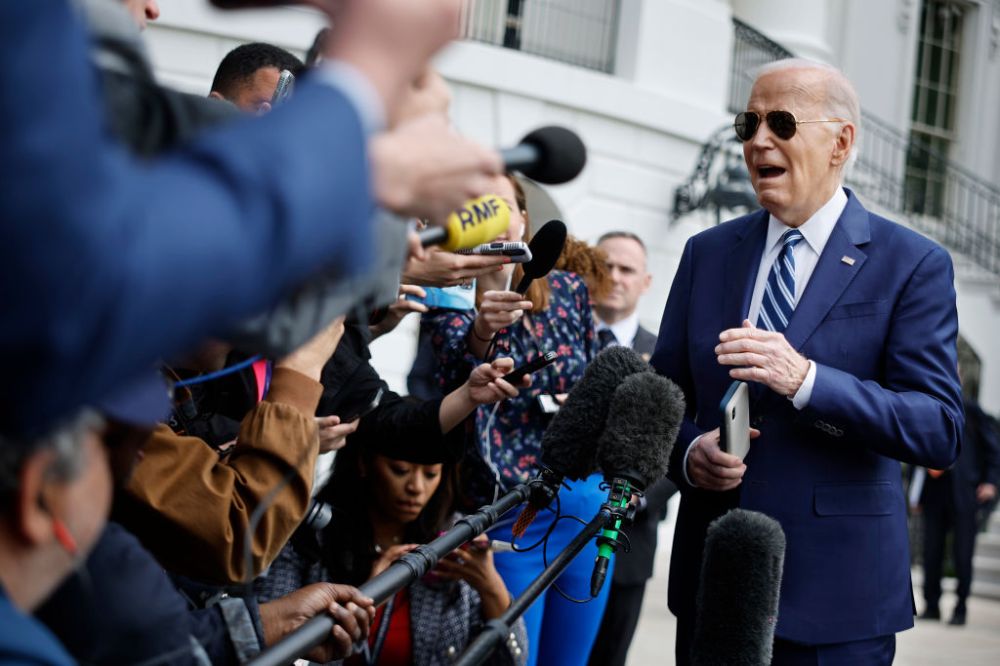

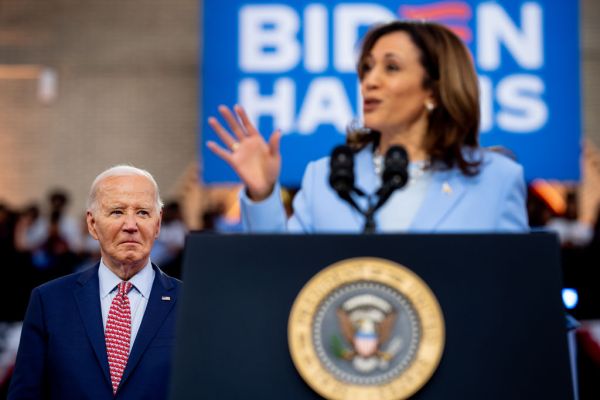
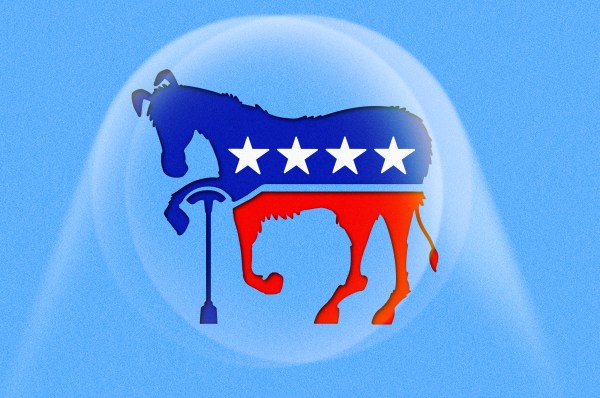
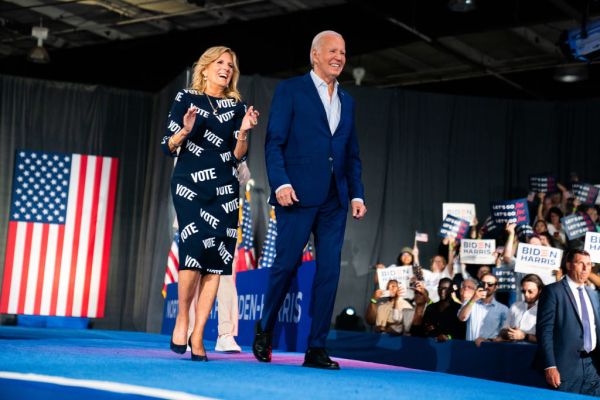
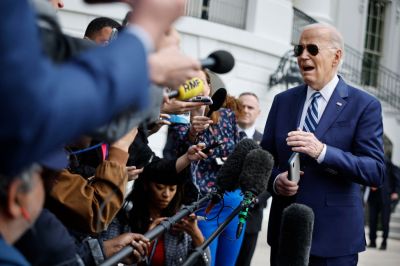
Please note that we at The Dispatch hold ourselves, our work, and our commenters to a higher standard than other places on the internet. We welcome comments that foster genuine debate or discussion—including comments critical of us or our work—but responses that include ad hominem attacks on fellow Dispatch members or are intended to stoke fear and anger may be moderated.
With your membership, you only have the ability to comment on The Morning Dispatch articles. Consider upgrading to join the conversation everywhere.